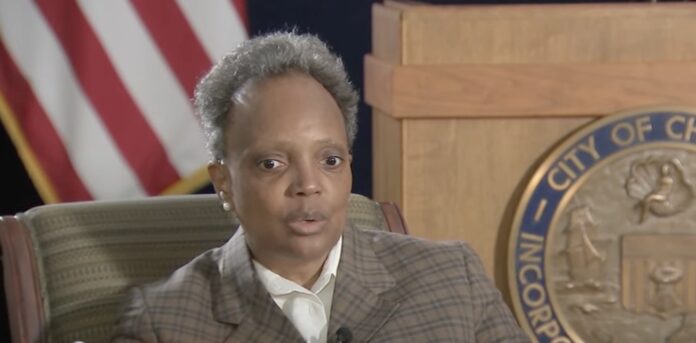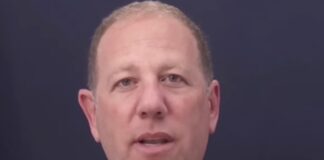Lori Lightfoot, the ex-mayor of Chicago, is set to educate on health policy and leadership at Harvard University.
The prestigious institution announced on Thursday that Lightfoot, who was unsuccessful in her re-election campaign, will be a senior leadership fellow for the autumn semester at the T.H. Chan School of Public Health in Boston.
🚨 POLL: Should Lightfoot be teaching at Harvard?
YES 👍 or NO 👎
“We believe our students will benefit from her experiences, insights and knowledge of leadership decision-making,” Eric Andersen, director of Senior Leadership Fellows Program at the school, said.
In a statement, Lightfoot said, “I’ll share specifics about the way we managed the COVID-19 public health crisis, and we’ll delve into how we approached the crisis as an avenue to address long standing public health equity challenges using data and science.”
The biggest Democrat losers: Lori Lightfoot, Hillary Clinton, De Blasio and Stacey Abrams all got teaching gigs at top universities. All the dumb liberal ideas and policies, that are hurting our country, came from places like Harvard. So now Harvard’s slapping a crimson blazer on… pic.twitter.com/DR03mXTKsT
— Jesse Watters (@JesseBWatters) June 2, 2023
“I also look forward to being part of the community of scholars, intellectuals and students at such a world class institution.”
Harvard just hired Lori Lightfoot 😂😂
What the hell does she know about leadership? pic.twitter.com/LYG7PRQM7C
— Proud Elephant 🇺🇸🦅 (@ProudElephantUS) June 1, 2023
During her single four-year term as mayor, which ended last month when leftist Brandon Johnson took over the role, Lightfoot made headlines for implementing strict lockdown measures and her inability to put a stop to rampant crime in the Windy City. The Harvard Gazette said her “accomplishments” includes “landmark ethics and good governance reforms, worker protection legislation, and key investments in education, public safety, and financial stability.”
After Lightfoot failed to secure a spot in the run-off contest in the mayoral election in late February, ABC7 Chicago reported that in an interview she pointed to the pandemic as well as George Floyd’s death and violence that ensued as factors in her defeat.
“There’s a lot of anger, frustration and fear that is present, not only in Chicago, but across our country. And, the winds of dissension continue to blow at a furious pace,” Lightfoot said. “So, for me, the biggest challenge wasn’t some particular person’s name on the ballot. The biggest challenge was breaking through what I call that ‘anger bubble.’”
— Advertisement —


